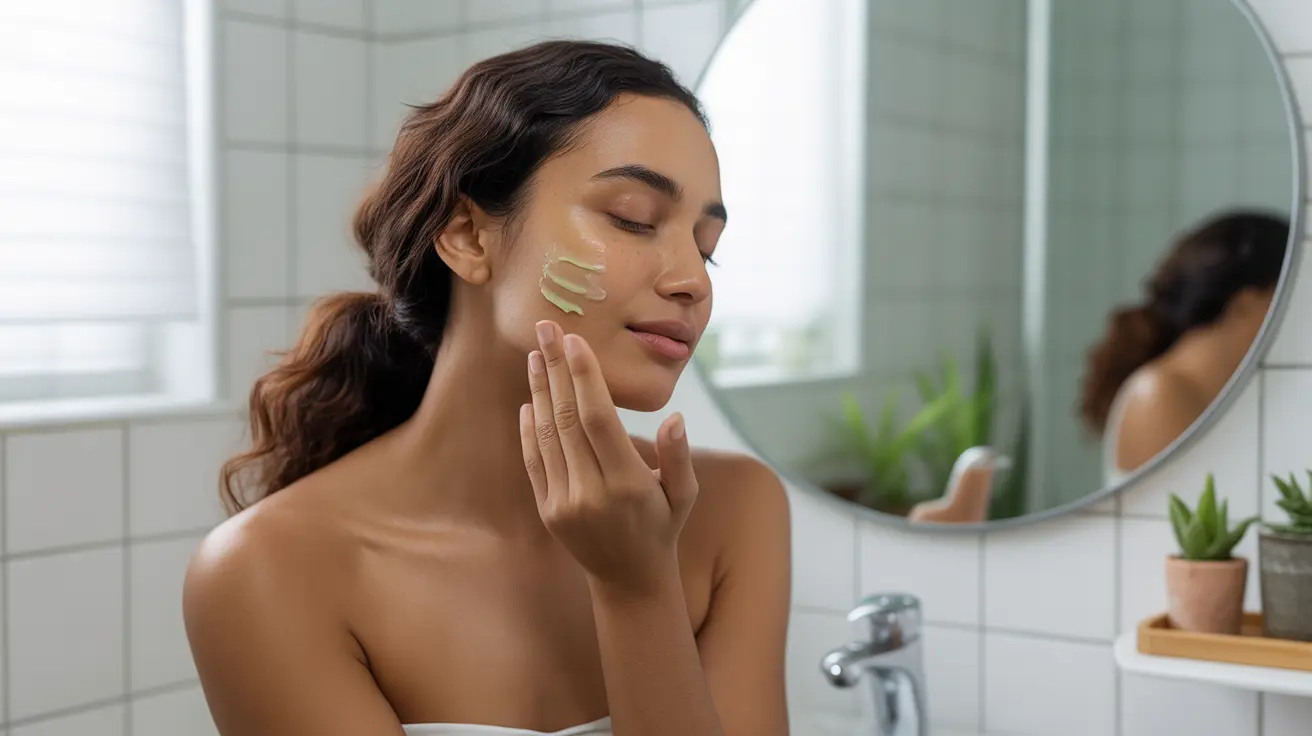Dealing with hyperpigmentation can be frustrating, but natural remedies like aloe vera offer promising solutions for those seeking gentler alternatives to chemical treatments. This versatile plant has been used for centuries in skincare, and its potential benefits for addressing uneven skin tone and dark spots have gained increasing attention from both skincare enthusiasts and researchers.
Understanding how aloe vera works on hyperpigmentation and learning the most effective ways to use it can help you achieve better results in your journey toward clearer, more even-toned skin. Let's explore the science behind aloe vera's benefits and how to incorporate it into your skincare routine safely.
How Aloe Vera Works on Hyperpigmented Skin
Aloe vera contains several active compounds that make it effective for addressing hyperpigmentation. The plant's natural enzymes and antioxidants work together to help reduce the appearance of dark spots while promoting healthy skin cell turnover.
The key components in aloe vera that target hyperpigmentation include:
- Aloin, a natural depigmenting compound
- Antioxidants that protect against further damage
- Anti-inflammatory properties that help calm irritated skin
- Natural moisturizing elements that support skin healing
Benefits of Using Aloe Vera for Dark Spots
When used consistently, aloe vera offers multiple benefits for treating hyperpigmentation:
- Gentle exfoliation of dead skin cells
- Protection against UV damage that can worsen dark spots
- Enhanced skin cell regeneration
- Improved skin moisture balance
- Reduced inflammation that can trigger pigmentation
Safe Application Methods
Direct Application
The most straightforward method is applying pure aloe vera gel directly to affected areas:
- Cleanse your face thoroughly
- Extract fresh aloe gel or use a pure, commercial version
- Apply a thin layer to dark spots
- Allow it to absorb completely
- Use twice daily for best results
DIY Treatment Combinations
Enhance aloe vera's effectiveness by combining it with other natural ingredients:
- Mix with lemon juice for additional brightening effects
- Combine with honey for added moisturizing benefits
- Create a mask with turmeric for extra anti-inflammatory properties
Best Practices and Precautions
While aloe vera is generally safe, following these guidelines ensures optimal results:
- Perform a patch test before full application
- Use pure, high-quality aloe vera gel
- Apply sunscreen daily when using aloe vera treatments
- Be consistent with applications
- Maintain realistic expectations about results
Frequently Asked Questions
How does aloe vera help reduce hyperpigmentation and dark spots on the skin?
Aloe vera contains natural compounds like aloin that inhibit melanin production and antioxidants that protect against further damage. Its anti-inflammatory properties also help prevent new dark spots from forming while supporting the skin's natural healing process.
What are the best ways to apply aloe vera gel for treating hyperpigmentation safely?
The safest method is to apply pure aloe vera gel directly to cleansed skin twice daily. You can use either fresh aloe vera gel from the plant or a high-quality commercial product. Always perform a patch test first and follow with sunscreen during daytime use.
Can aloe vera completely remove dark spots caused by sun exposure or hormonal changes?
While aloe vera can significantly improve the appearance of dark spots, complete removal may not be possible for all types of hyperpigmentation. Results vary depending on the cause and severity of the dark spots, with sun-induced spots typically responding better than hormonal ones.
Are there any side effects or risks of using aloe vera on sensitive or darker skin with hyperpigmentation?
Aloe vera is generally safe for all skin types, but some people may experience mild irritation or allergic reactions. Those with sensitive skin should always perform a patch test and start with once-daily applications to monitor their skin's response.
How long does it typically take to see improvements in skin tone when using aloe vera for hyperpigmentation?
Most people begin to notice subtle improvements within 4-8 weeks of consistent use. However, significant results typically require 2-3 months of regular application. Factors like sun exposure, skin type, and the severity of hyperpigmentation can affect the timeline.




